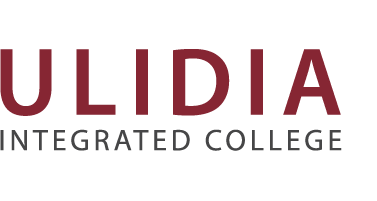Introduction and Ethos of Department
Mathematics embraces a wide range of inter-related activities. It is concerned with the organisation, manipulation and communication of information according to well-defined rules and processes. Everyone will appreciate that these include an understanding of number and measurement and their use in many walks of life.
Why do we teach Mathematics?
1. It is an enjoyable intellectual activity
Mathematics can be a stimulating, challenging and enjoyable experience. It gives pupils the opportunity to “get the right answer” and such mastery of a subject results in enjoyment.
2. It makes a major contribution to other subjects
Work in many other subjects involves mathematical activities. Such activities include: number and algebra (Science), measures (Science and Home Economics), geometry (Home Economics, Art and Design, Technology and Geography) and statistics (Geography, Biology and History). If pupils can see why certain aspects of Mathematics should be learnt this will provide motivation and encouragement.
3. Its use in everyday life
A facility in Mathematics is necessary in managing budgets, DIY tasks, understanding statistical and graphical data and many other aspects of life in the home or in adulthood.
4. It can contribute significantly to the development of pupils’ general skills and qualities such as communication, reasoning, problem solving, perseverance and creativity. These are transferrable skills to any workplace.
5. It is fundamental to many career choices such as Engineering, Accountancy, Financial Services and beneficial for career paths with IT and Architecture.
How do we believe Mathematics should be taught?
The teaching/learning of Mathematics throughout the school should facilitate opportunities for:
• teacher exposition
• consolidation and practice of fundamental skills
• teacher/pupil and pupil/pupil discussions
• practical work
• investigation work
• development of mental fluency
• confidence in the use of current technology
Aims
To encourage:
• an enjoyment from doing Mathematics
• a sense of self-esteem
• all children to think clearly, creatively and critically
• pupils to work co-operatively and independently
• pupils to be tolerant of the opinions of their peers
• the development of the self-discipline to work at an appropriate task, in some depth, over a period of time
• pupils to communicate clearly their thinking
• an appreciation of the place of Mathematics in society including historical and cultural influences
• an appreciation of the interdependence of the different branches of Mathematics
• an awareness of the contribution Mathematics makes to other subjects
Department Objectives
To develop:
• Pupils’ confidence in their Mathematical abilities
• A positive attitude towards Mathematics
• The knowledge, skills and understanding needed to apply a range of mathematical concepts to situations which may arise in their lives
• An appreciation of patterns and relations in Mathematics
• Confidence in computation by mental, pencil and paper and calculator methods
• Skills associated with the investigation of Mathematical ideas such as testing and proving their own hypothesis
• A firm foundation for appropriate further study
The Staff & Positions
Subject Leader – Mrs A O’Rourke
Subject Teachers – Mrs J Allen, Miss L Hall, Miss L McCourt and Mr A Fittis
KS3
Overview
All pupils will study the following aspects of Mathematics:
- Number and Algebra
- Geometry and Measures
- Statistics and Probability
- Handling Data
Financial capability is now established within the curriculum. This enables pupils to make informed judgments which enable them to take effective decisions regarding the management of money in their present and adult life.
Assessment throughout the year
A test will be completed during every half-term, comprising of 3 or 4 topics.
Homework
Pupils in the All-Ability Pathway should have 3 homeworks in each fortnightly cycle, including a formal hand in homework and learning tables. Pupils in the Grammar Pathway should have at least 3 homeworks in each fortnightly cycle, including a formal hand in homework.
Notetaking
Each pupil will be issued with a red notebook for their class notes. Pupils should write all key words in red and underline titles. The rest of the notes should be recorded with blue or black pen and all diagrams should be completed neatly using a pencil and a ruler. The contents page which includes all the topics studied during the year should also be kept up-to-date. Where appropriate staff will provide students with handouts to supplement notes.
Equipment Required
Blue or Black Pen, Red pen, Pencil, Ruler, Protractor, Rubber, Compass, Scientific Calculator, glue and A4 plastic folder.
KS4 &KS5
Overview
GCSE Mathematics
- We follow the CCEA syllabus.
- At the end of Year 11 pupils will either sit the M2 (Foundation), M3 (Higher) or M4 (Higher) module, worth 45%.
- At the end of Year 12 all pupils will either sit the M6 (Foundation), M7(Higher) or M8(Higher) module, worth 45%.
GCSE Further Mathematics
- In August 2019 the %A*-C in Further Maths was 100% (16 pupils)
- At the end of year 11 pupils will sit statistics module worth 25%.
- At the end of year 12 pupils will sit a pure module (worth 50%) and Mechanics Module (worth 25%).
A Level Mathematics
• In August 2019 the department obtained 80% A*-C (5 pupils in class).
• There are currently 8 pupils in both year 13 and year 14.
Announcement of Special event – Promotion of A’level Maths Event – Monday 30th January
Pupils from Year 11 and 12 Higher Maths classes, and a selection of Year 10 pupils will attend this event. The careers represented will include Finance, IT and Data Analysis. Visitors will inform students of some of the Mathematics involved in their jobs as well as the skills required in their field.

